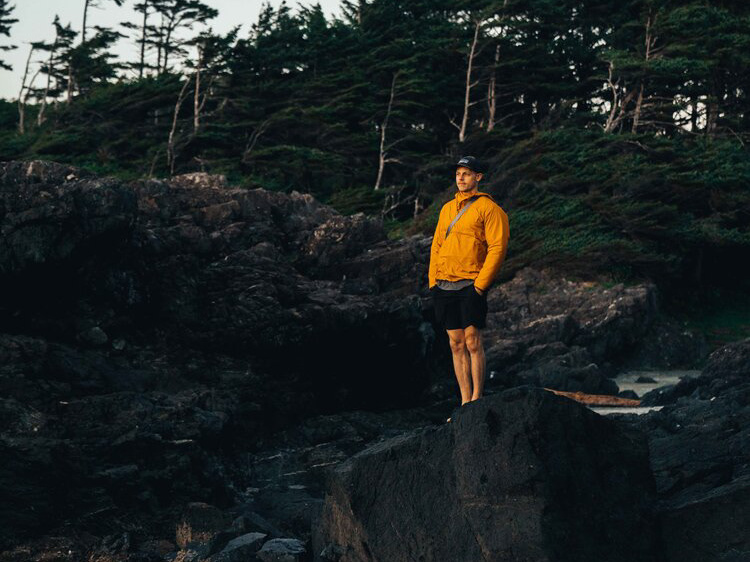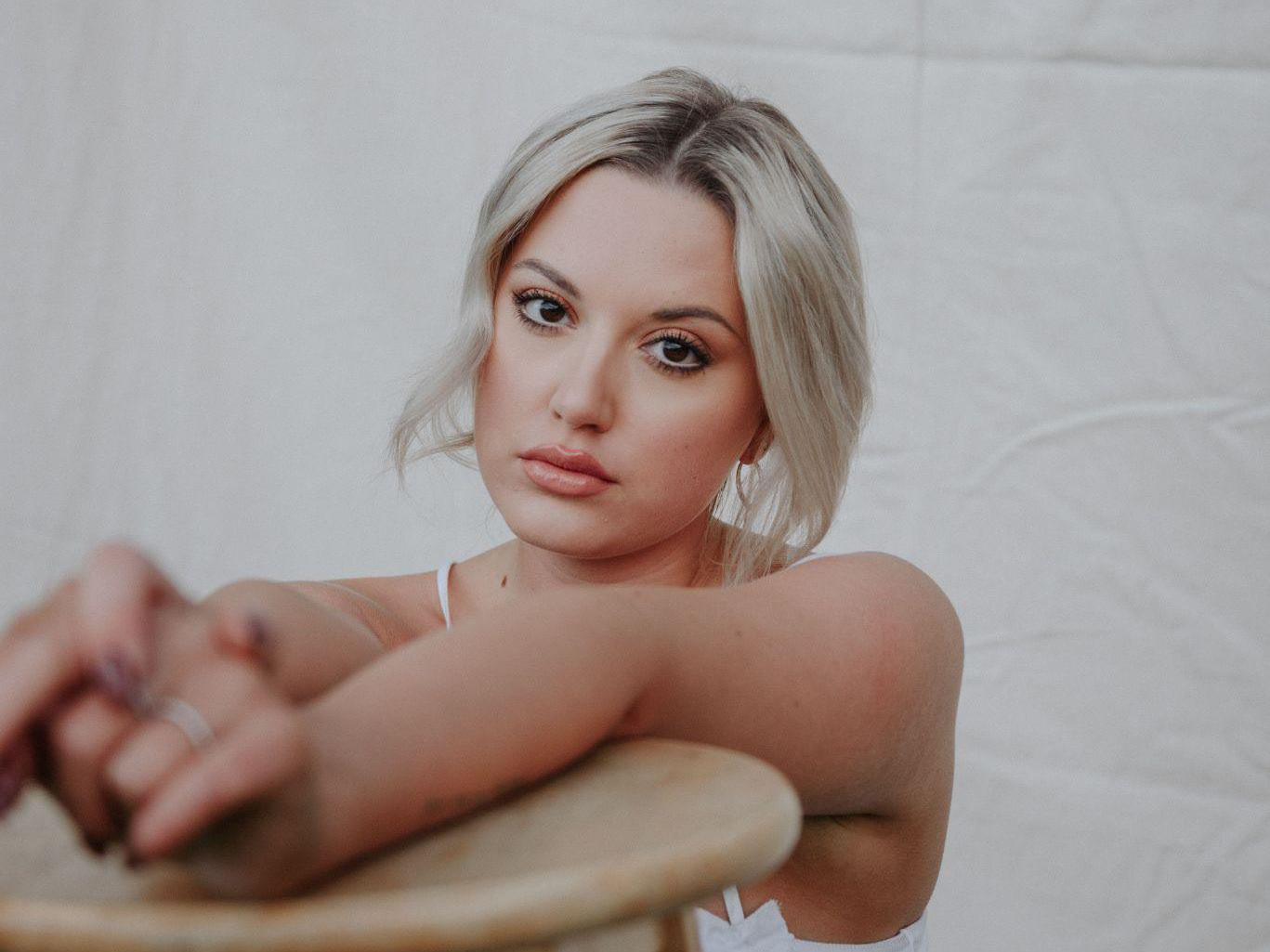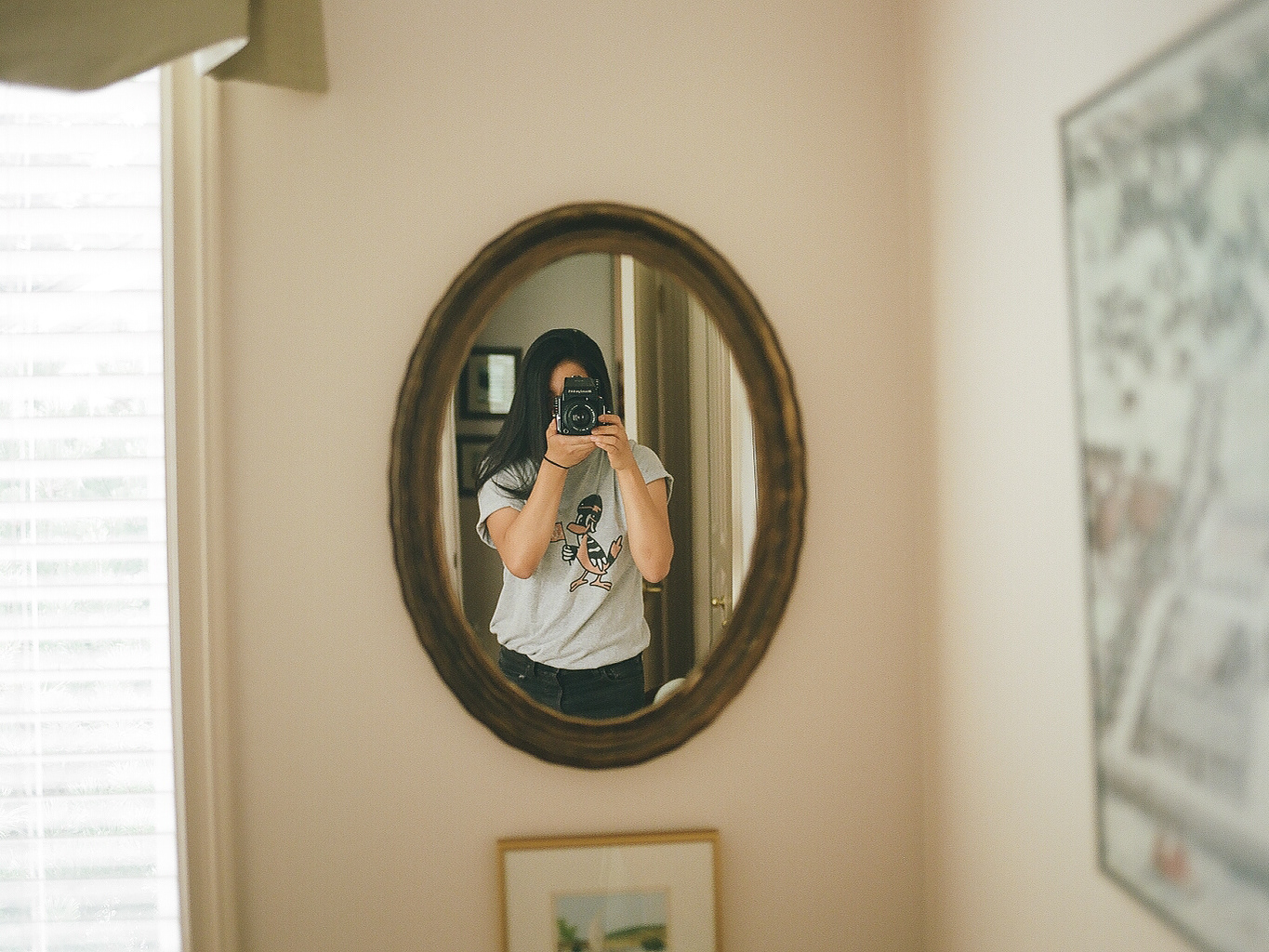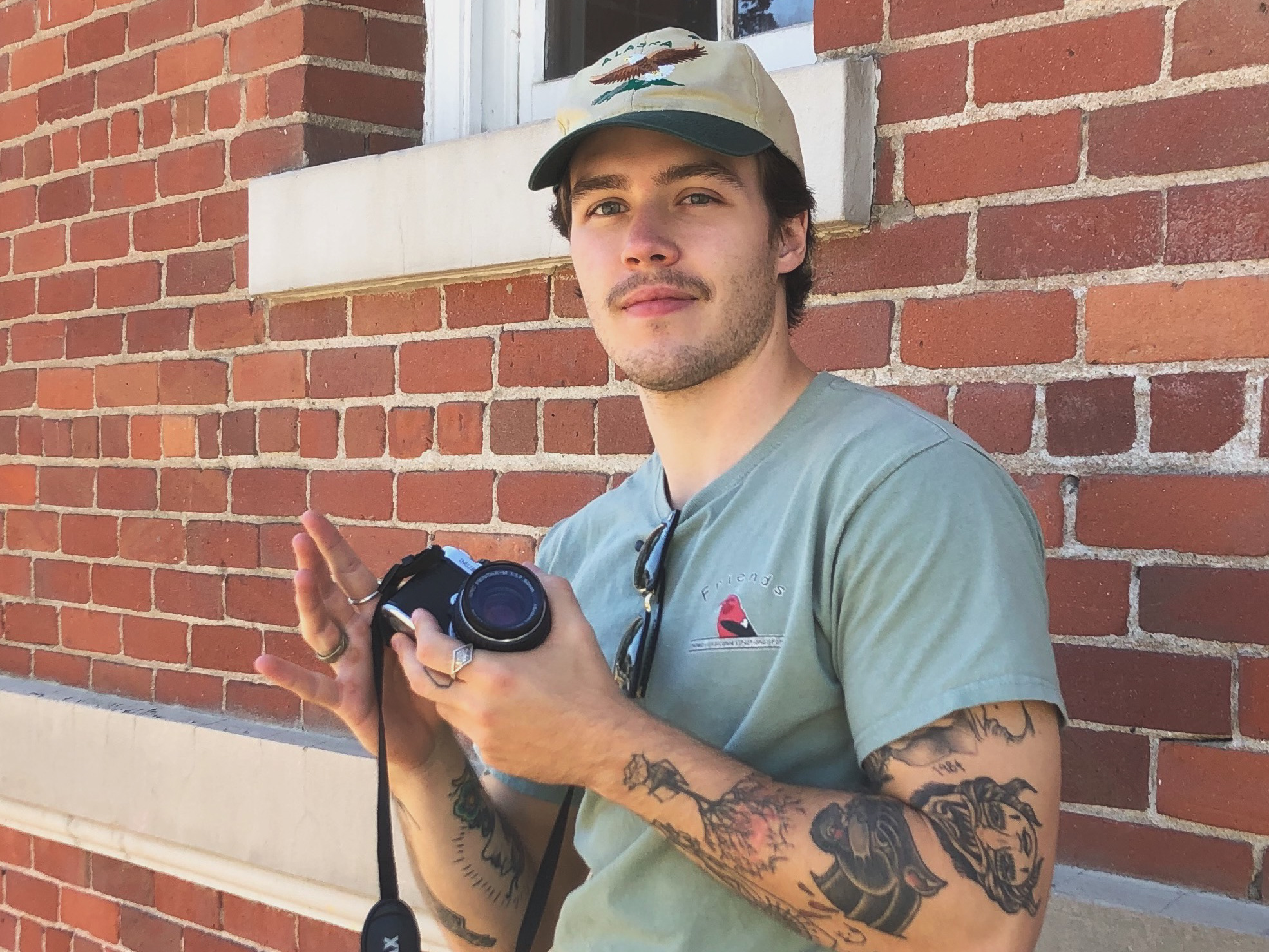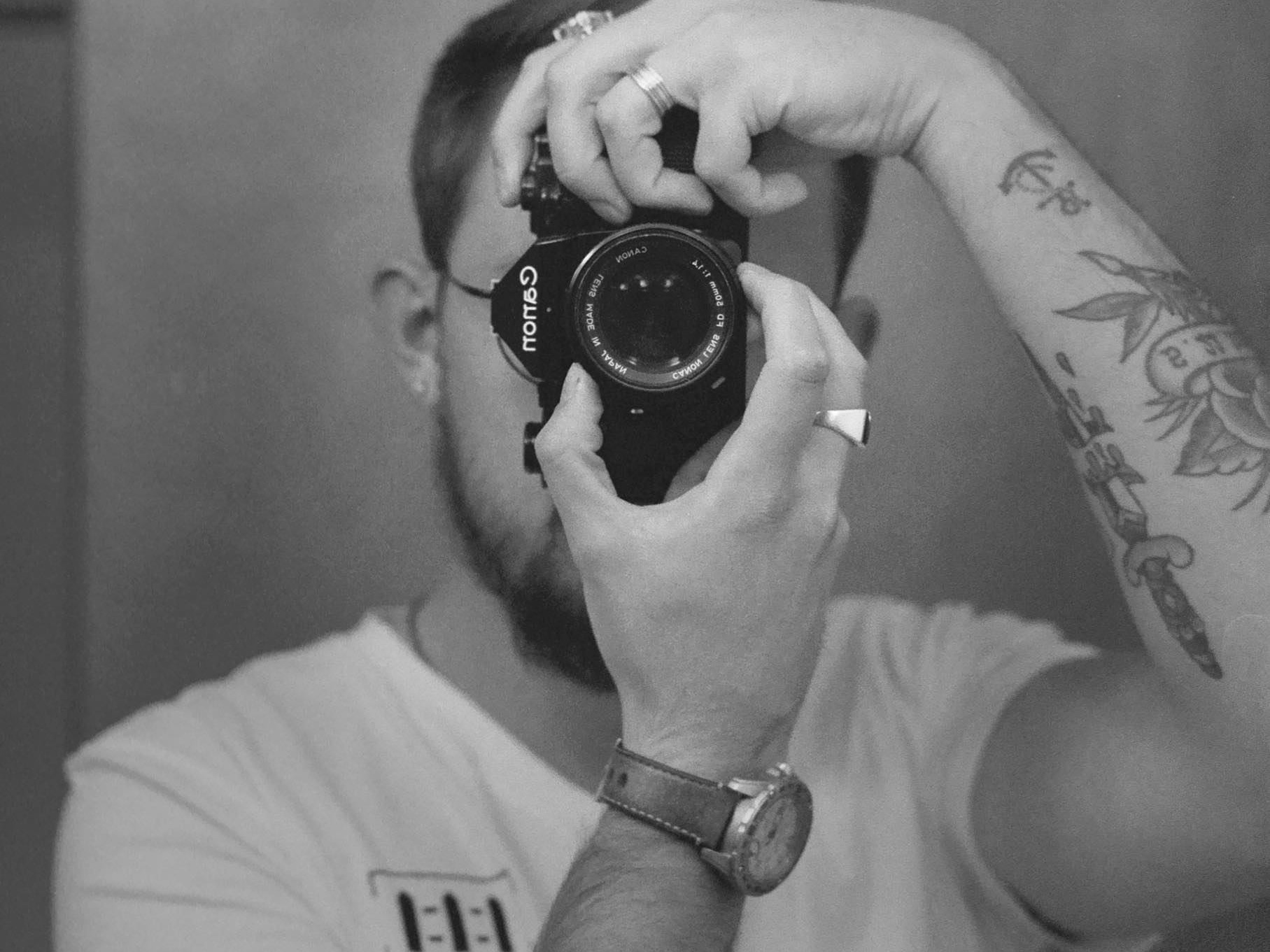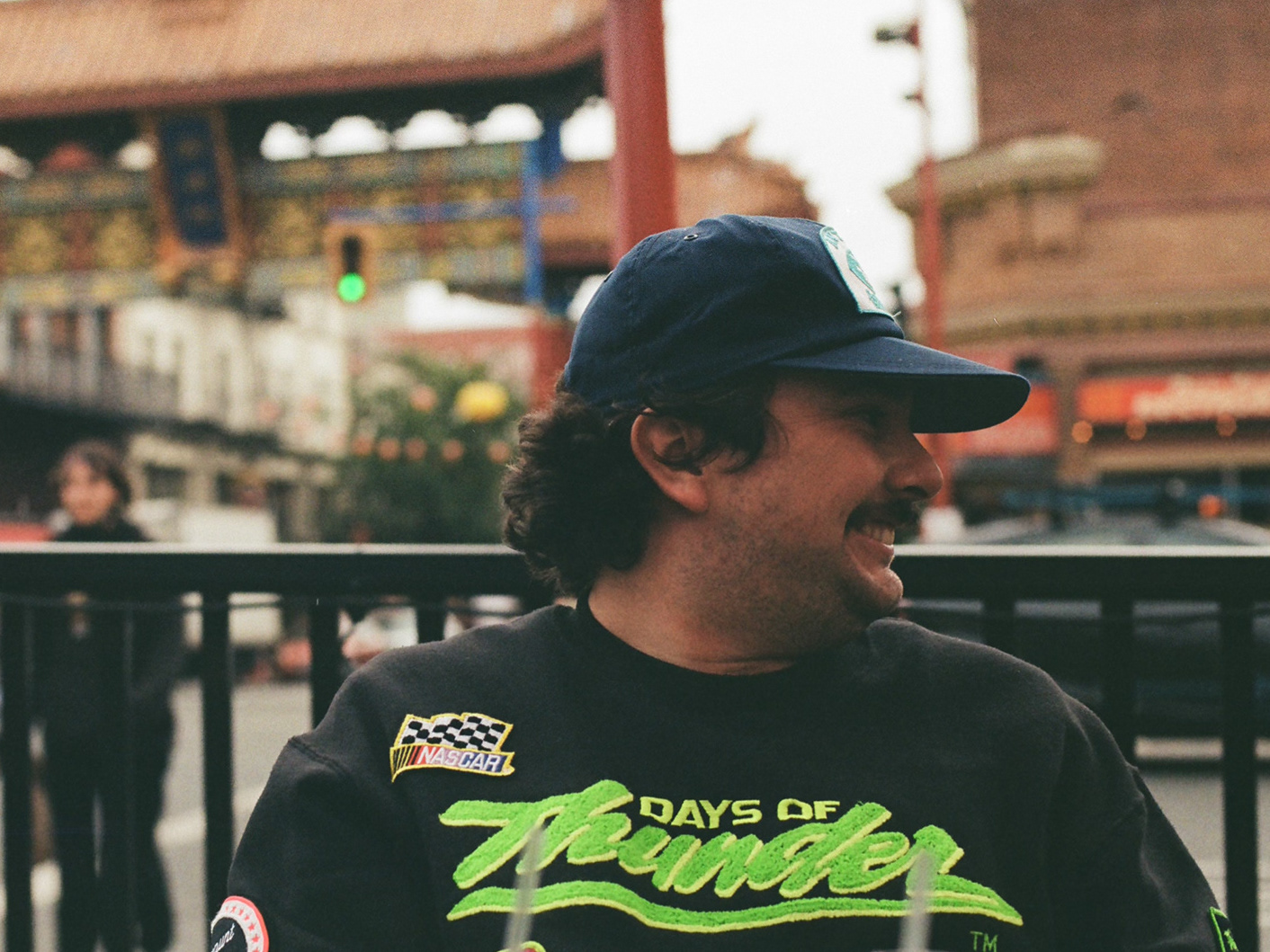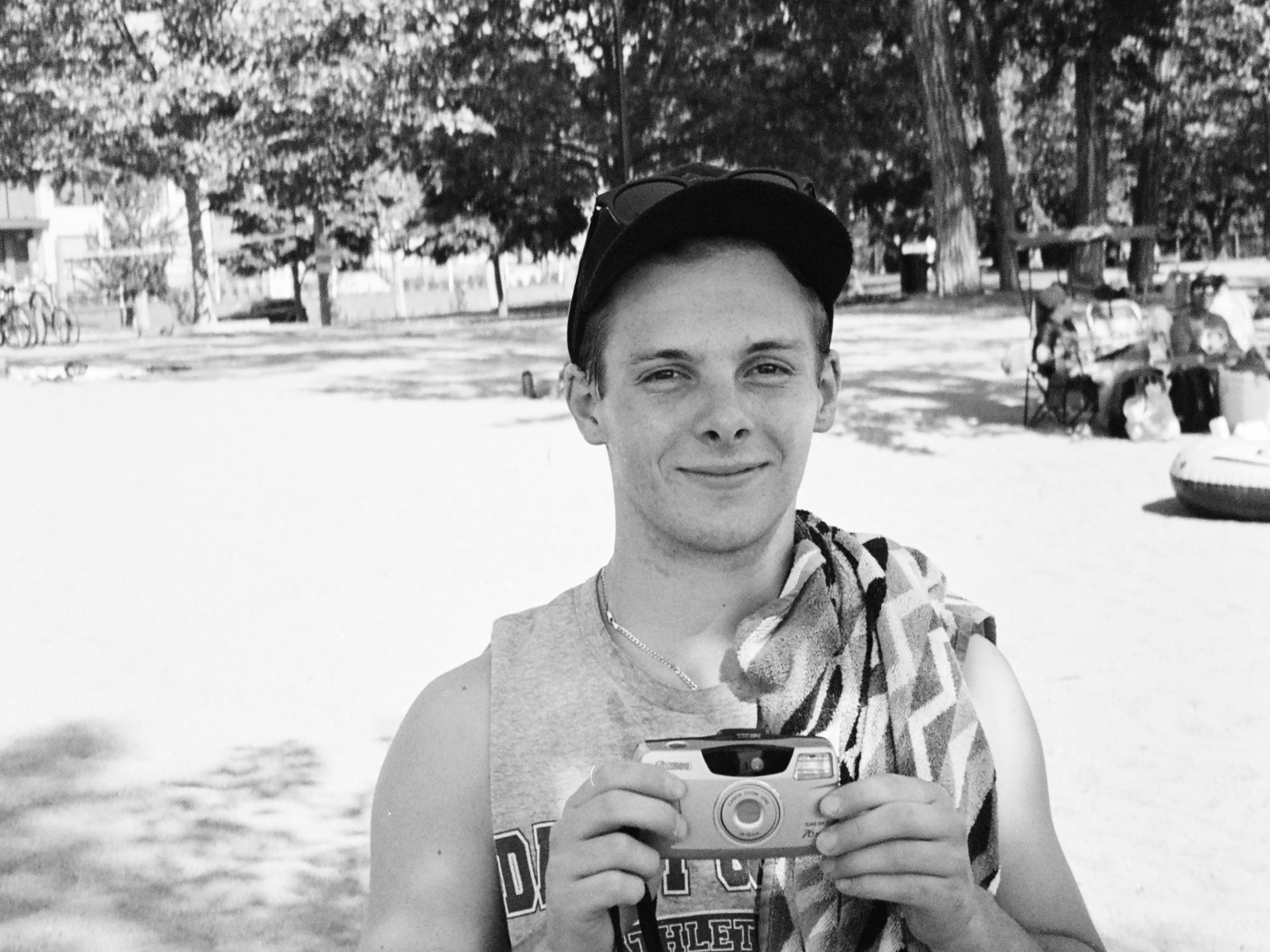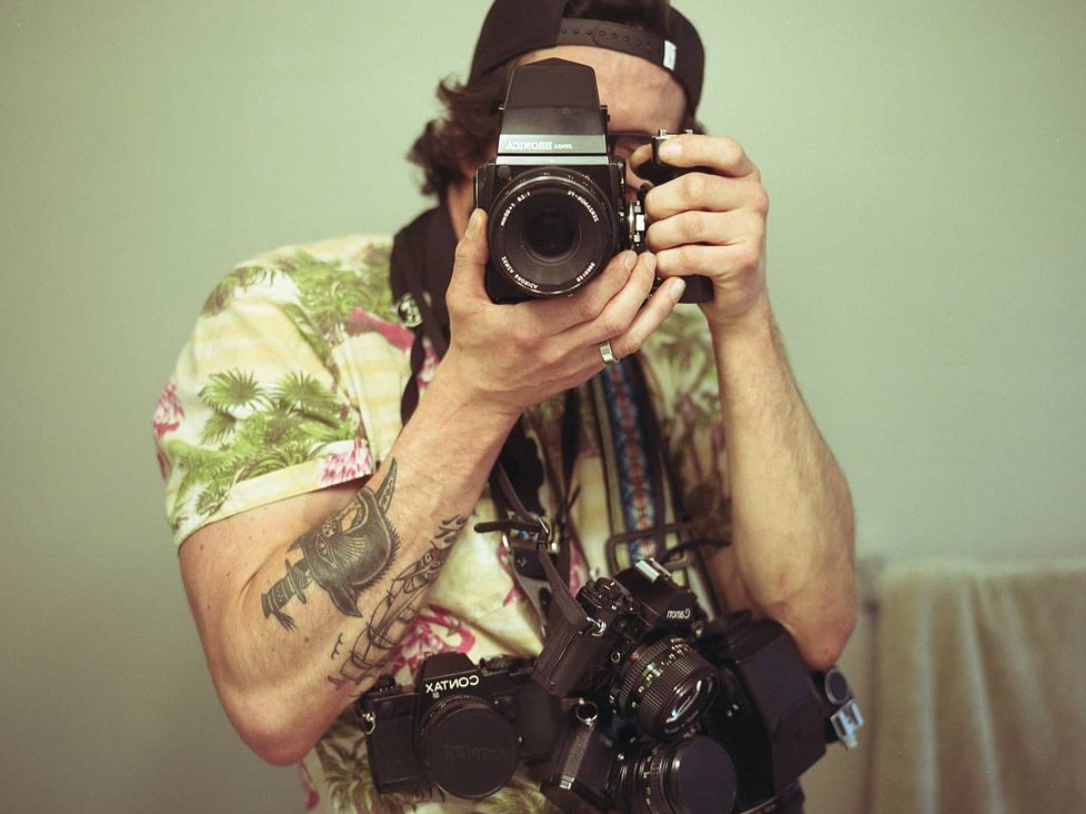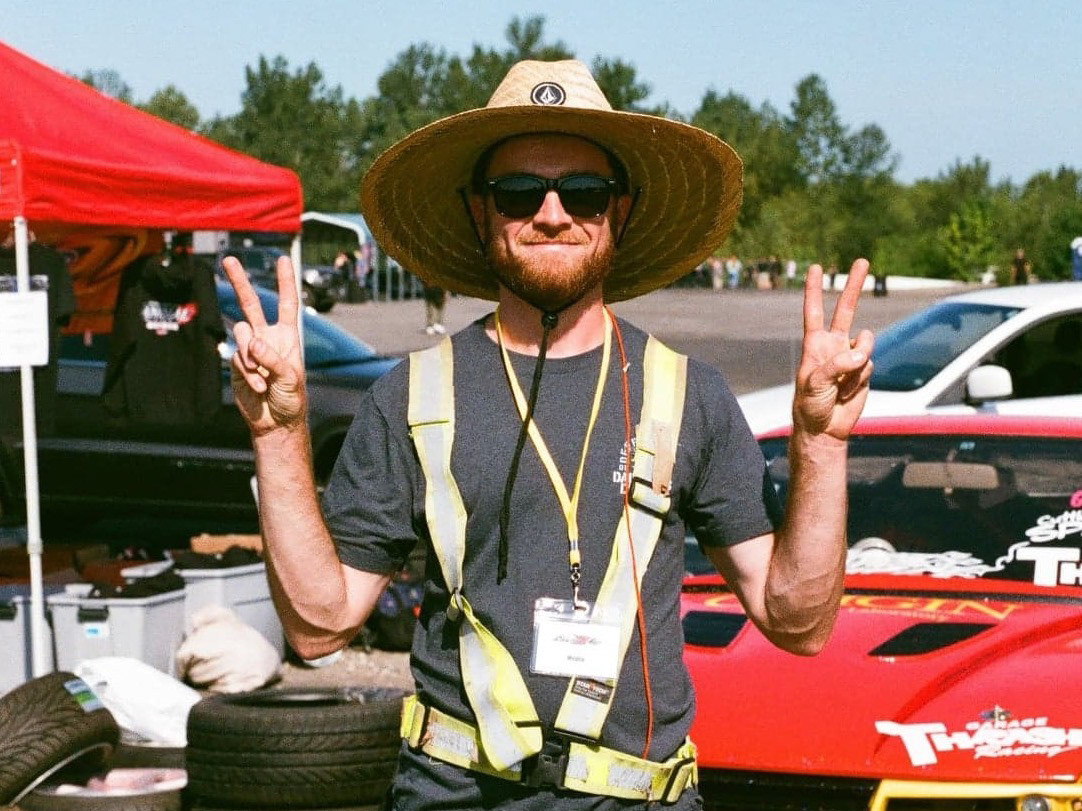Steff Grondin
Tell us a little about yourself! Where are you from/where do you live? What do you like to do besides photography?
Hi there! My name is Steff Grondin (@steffscapes) and I’m a BC girl currently living in the big ol’ city of Toronto. Growing up in BC allowed me to develop an appreciation for the outdoors, so when I’m not researching stars for my PhD in Astronomy and Astrophysics you can find me hiking, vibing to David Bowie on vinyl or shooting film (of course!).
When did you first get into photography? When did you start shooting film?
I was introduced to the fantastic art of film photography through my friends during the final years of my undergraduate degree. My friends and loved ones continue to be huge inspirations for my work, so while I love to photograph landscapes, some of my favourite shots have been candid portraits taken during good times.
"Saying goodbye is never easy, but doing it over an ocean sunset at the place where you learned, grew and loved is probably the best way to do it. To me, this photo represents the end of a coming of age story. Each third of the photo represents the passage of time – the hustle and bustle of the past in the foreground meets Tim in the present who is looking out into the uncertain waves of the future. Like tides, life is full of ebbs and flows, but I’ve found a sense of calm in knowing that some things will never change."
What camera are you currently using the most? What’s your go-to film stock?
My baby and most used 35mm camera is a Canon AE-1 named “Sheep.” I purchased it for next to nothing from a kind elderly man who had decked out the body with stickers and text of the animal (who am I to erase that legacy?). In terms of film, my go-to stock is Portra 400 (original, I know) but I’m always looking for new effect films to try, so please reach out if you have any cool recommendations!
What’s your dream camera?
Being an astrophysics PhD student and space enthusiast, shooting with a Hasselblad 500C –the first camera that went to the moon – would be absolutely epic. Imagine photographing the moon with this absolute relic of a camera. Iconic!
One camera, one film, one location for an entire year. What are they?
I truly cannot think of a better vibe than capturing the diverse geography of Iceland on Portra 400 with my trusty Canon AE-1. With a lightweight 35mm camera and the exceptional light range allowed by Portra 400, you could backpack in the mountains and shoot volcanoes during the day and easily transition to capturing the northern lights at night. One day I’ll do this, so stay tuned for the photos. ;)
"Sigh, the British Columbian alpine in late summer. It’s hard not to feel at home and at peace in the mountains, especially since many of my favourite memories and photos have been made thousands of meters above sea level. This hike to Black Tusk in Garibaldi Provincial Park was no exception and allowed us to experience probably the most stunning subalpine meadow in this country. Trekking through the mountains is always filled with stunning surprises like these, which makes carrying the weight of a film camera absolutely worth it."
Is there anyone that has really influenced your work? Either another artist or someone outside of the photography world?
This probably sounds cheesy, but I genuinely draw my inspiration from the people I’m with and the places I’m in. Mountains make me feel triumphant, while friends give me joy. The city makes me feel small, while my family brings me warmth. The slow process of film allows me to take in my surroundings and just *feel* before pressing the shutter. That being said, my film photography is constantly inspired by the work of my dear friend Ella Meyer (@bluejeanjournals) whom without, I would not be shooting film today.
How has the pandemic affected you creatively? Would you say it hindered you in your photography?
My journey into the art of film only began in December 2019, so it’s fair to say that my passion for shooting film actually developed during the pandemic. Although I had a blast capturing fleeting moments on the Oregon coast with my friends before the pandemic began, being isolated from people really allowed me to focus on learning the fundamentals early on rather than just pressing the shutter and hoping for the best. Furthermore, for a long time it was only safe to hang out with friends at a distance outside, so we ventured out and made great memories (and photos) in the mountains and wilderness of BC.
Tell us about astrophysics! If possible, sum it up in a few sentences for people that aren’t familiar with it.
Astrophysics is the study of the universe and the things that inhabit it beyond our Pale Blue Dot (Earth). Astrophysicists use telescope observations, computer simulations and theories to understand things like the life and death of stars, galaxies and even the fate of the universe. I would say it is one of the only professions where timescales of millions of years are small.
What made you decide to study astrophysics? What was the turning point (if there was one)?
Growing up in a small town, there were few opportunities to learn first-hand about a variety of possible careers post-graduation. I’ve always loved school, so my original plan was to become a medical doctor. It was only in my senior year of high school that I read Stephen Hawking’s “A Brief History of Time” and knew that I had to venture into the field and play a small role in understanding our universe (and by virtue ourselves, as like Carl Sagan said, “we are a way for the universe to know itself.” ). So I suppose that one day I will (hopefully) live my childhood dream of becoming a doctor, only one that studies the cosmos.
What careers can you pursue with a PhD in Astrophysics?
While I still take classes and teach undergraduate university students, the majority of my PhD is conducting new astronomical research. With a PhD in Astronomy and Astrophysics, one could continue on in academia and/or become a scientific researcher. A lesser-known fact about astrophysics is that a ton of research involves computer programming and modelling, so careers in data science and finance are also possible and relatively common in this field.
Is there a way for Astrophysics and photography to go together? Have you explored these possibilities?
Astrophysics + photography = astrophotography! Gazing up and photographing the Milky Way is a beautiful reminder of how small we truly are. Furthermore, looking through telescopes to photograph the moon and planets is a super cool way to feel in-touch with our night sky! While I’ve only shot the cosmos on film a couple times, I definitely hope to combine my passions and branch into more astrophotography on film in the coming years.
Favourite Quote
Nobody said it better than King Billy Joel himself – “Slow down, you’re doing fine. You can’t be everything you want to be before your time.” To me, it means to enjoy the moment, take a breath and know that you’re right where you need to be. Things are hard, but one day you’ll get there.
1-2 songs that you currently have on repeat.
Stop reading this interview, put down your phone and go listen to “Home” by LCD Soundsystem and “Mi Amor” by Plastic Mode. Moving away from BC has me experiencing EMOTIONS and nostalgically listening to LCD Soundsystem and dancing to Italo Disco thousands of kilometers away is sometimes just what you need. Follow me on Spotify for playlists for every mood and occasion.
Any closing statements or messages you want to send to readers?
Capture the moments that you want to remember. Instagram is truly a blessing and a curse in that there are so many talented photographers showcasing a myriad of “perfect pictures.” But part of the joy of shooting film is that you get to capture and hold on to specific moments forever. So while some of my “best” photos are mountainscapes and sunsets over the ocean, my favourite photos are the ones of my loved ones with too-big smiles that are slightly out of focus. Maybe I’m nostalgic, but capturing light from those moments on physical film will mean that those memories are never lost. And that’s why I shoot film. :)
